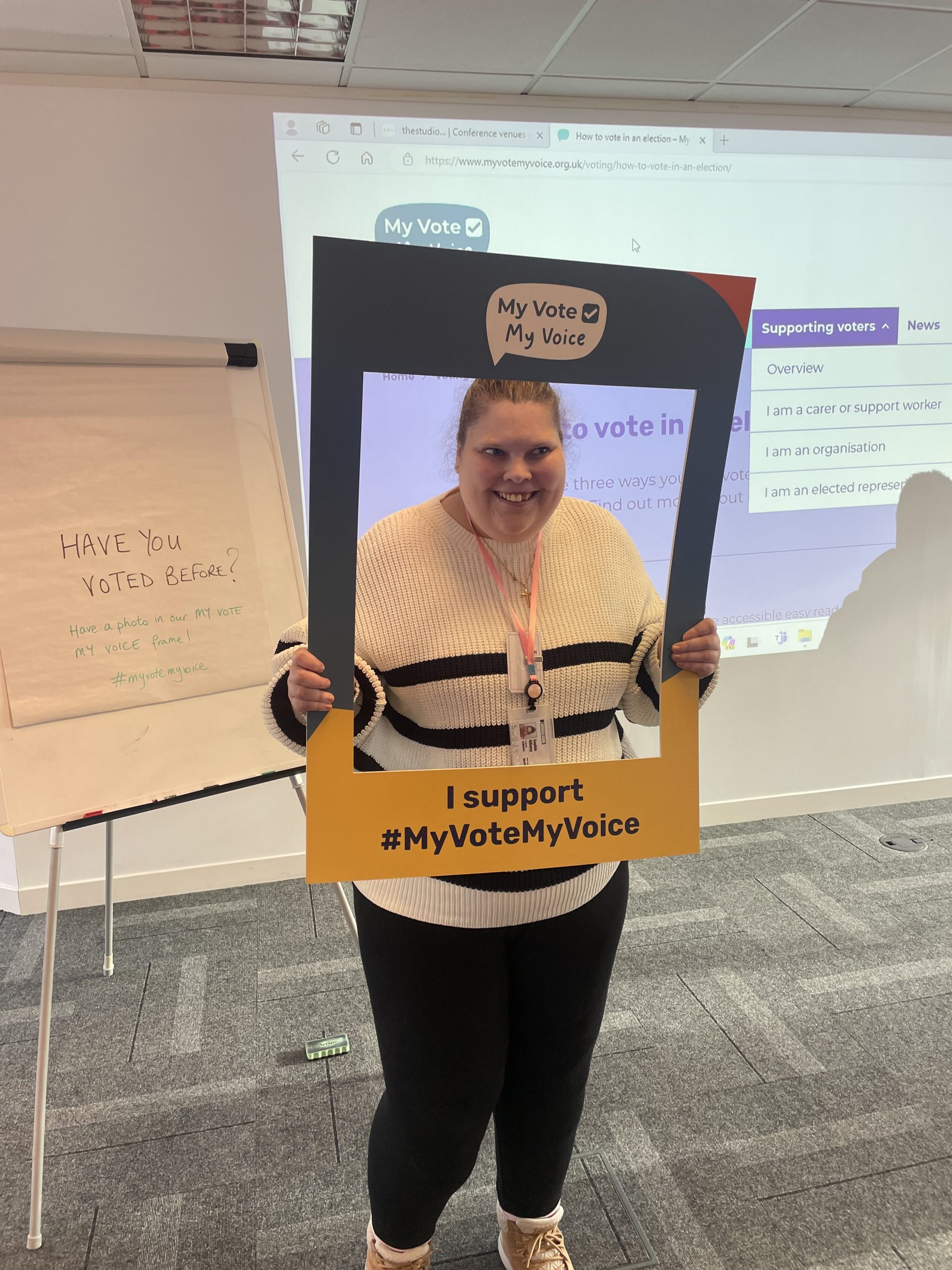The following statement has been compiled by listening to the voices of those involved with Options for Supported Living in the lead up to the General Election 2024. It is intended to support people to engage with the election and choose which political party or local politician they wish to vote for.

We are all people. We are all unique. We all bring value to the world around us and we all have a contribution to make. This is true whether we live with a disability or not.
We all want to live life to the full. We all want to live in the place we call home, with the people and things we love, in dynamic and inclusive communities doing the things that matter to us. This is true no matter how we access support or local services.
We want good leadership and a government that values us. We want our voice to be heard and our efforts to be seen. This is true whether we access support, are paid to provide support or simply support our friends and family members.
We currently feel unseen, unheard and undervalued. We don’t think the current system of social care is working to deliver the lives we want to live. We want to hear more about what each political party will do to improve social care if they were in government.
Together, we have lots of questions that we would like a new government to answer. If we meet people whilst campaigning, these are questions we’d like to ask. Some of these are big:
- Why is it that people with disabilities die 20 years younger than those without, and what are you doing about it?
- How have you listened to us in building your manifesto. How have the voices of those who access support been heard? Have you listened to those who communicate without using words or social media?
- Why are we struggling to access the healthcare we sometimes need and how will you resolve this?
- Why are some houses and public buildings still not accessible, and when will accessibility standards include consideration for people with learning disabilities and neuro-diverse conditions?
- How will you make sure that no-one is living in a hospital setting for any longer than they need to be?
- Why is it that support work remains one of the lowest paid sectors in our economy, despite the work being highly skilled and much needed?
- How would you know whether my benefits or pay are enough for me to live on?
- How will you ensure that our local authorities have enough resources to ensure we can live the lives we want to live?
- How will you ensure that everyone in our community understand and adequately support people with disabilities and neuro-diversities? What specifically are you doing to support us in schools, in health centres and on public transport?
- Why are people with disabilities not able to get a job despite wanting one and having the skills to contribute to the workplace. [Mencap show that 26.7% of people with learning disabilities are in paid employment, despite 87% wanting to work]
We also have some specific questions. These might seem smaller or more local to you, but they are things we have experienced locally that impact on the life we want to live.
- How will you ensure that I have the right number of support hours that will enable me to do the things I want to do, when I want to do them?
- Where is your easy-read manifesto?
- What are you doing to support my access to my local shops, swimming pool, leisure centre, arts class or any other place I like to go.
- In a cashless society I need support to manage my money safely and an opportunity to pay by cash if needed. How can you support me with this?
- Why can I not ride on all buses or trains with my wheelchair or mobility scooter? How am I expected to travel to places otherwise.
- Why do all schools not have reasonable adjustments to support my learning, including quiet spaces.
- Why am I struggling to get hold of the medicine I need, or the adaptive equipment my Occupational Therapist says I need?
- Why do I need to wait for such a long time during appointments, in places that make me anxious?
- How do you make sure that the staff in the places I visit [add your own place] are better informed about adjustments I might need?
- How many people with disabilities or forms of neurodiversity are in your team?
- How can I be a leader in my community?